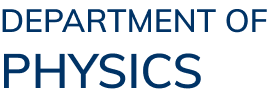Abstract
Neutrinos in the early Universe decoupled essentially in helicity eigenstates. As they propagate through the Universe, their helicities could be modified via two effects. First, neutrinos with a finite magnetic moment would rotate their spins with respect to their momenta as they encounter cosmic magnetic fields, modifying their helicities. Second, the bending of neutrino's spin by a gravitational field lags the bending of its momentum, again modifying its helicity. The speaker’s team studies both effects and investigates the implications of the helicity modification on the detection of relic neutrinos using the Inverse Tritium Beta Decay (ITBD) reaction. The team finds that the ITBD rate depends sensitively on the neutrino mass hierarchy and on the Dirac or Majorana nature of the neutrinos. This talk is based on several recent papers in collaboration with Gordon BAYM.
Prof. Jen-Chieh Peng is Professor Emeritus in the Physics Department of University of Illinois at Urbana-Champaign. His research interests include the quark and antiquark structure of nucleons and nuclei, fundamental symmetries, and neutrino physics. He has conducted experiments at the AGS, LAMPF, Jefferson Laboratory, Fermilab, and CERN. He is the spokesperson or co-spokesperson for around 10 nuclear and particle physics experiments.
For more information regarding this program, please visit https://ias.hkust.edu.hk/events/evolution-of-helicity-property-of-relic-neutrinos-and-implications-on-their-detection.
